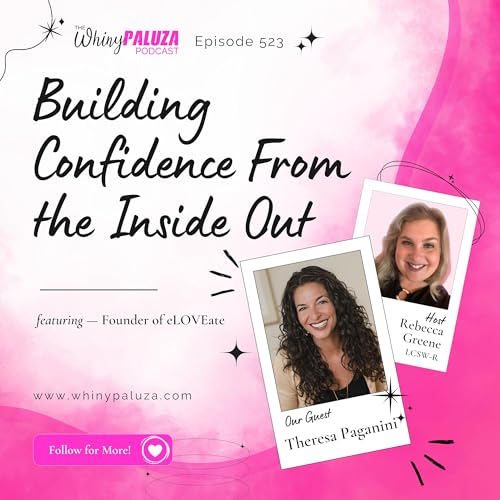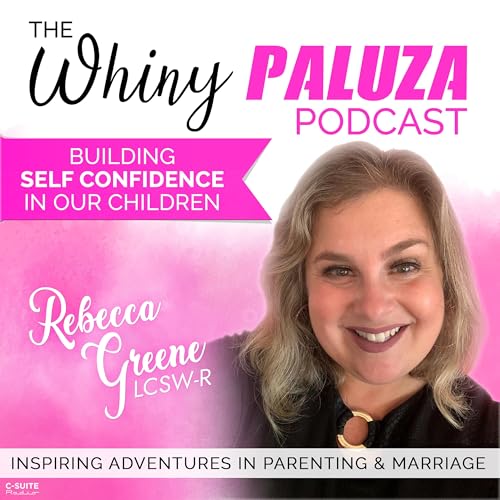
The Whinypaluza Podcast
カートのアイテムが多すぎます
カートに追加できませんでした。
ウィッシュリストに追加できませんでした。
ほしい物リストの削除に失敗しました。
ポッドキャストのフォローに失敗しました
ポッドキャストのフォロー解除に失敗しました
-
ナレーター:
-
著者:
-
Rebecca Greene
概要
Parenthood is an adventure! The joys, the frustration, the laughter, and the tears- we all find unique and universal challenges as parents. When one issue resolves, another is waiting in the wings. Our jobs as parents are truly never done. It really is the toughest job you will ever love. The Whinypaluza Podcast is all about inspiring adventures in parenting! Rebecca Greene, LCSW-R and Top 100 Mommy Blogger puts her experience and education in psychology and social work to the test while she shares insightful thoughts on marriage, stay-at-home life, and keeping three energetic kids safe and happy. On the show, you will hear from bloggers, parenting experts, marriage experts and more as they shed light on tips and tricks to make life with your family better than ever! Find solutions to questions you have and questions you never thought to ask. Whether you are a parenting novice or parenting pro, you are sure to find a valuable source of information and support in the Whinypaluza community. Follow Rebecca Greene Blog: https://www.whinypaluza.com/ Book: http://bit.ly/WhinypaluzaBook Book 2: https://bit.ly/whinybook2 Facebook: https://www.facebook.com/whinypaluzaparentingandmarriage Instagram: https://www.instagram.com/becgreene5/
Copyright © 2020 Whinypaluza, Rebecca Greene | All rights reserved-
 49 分
49 分カートのアイテムが多すぎます
ご購入は五十タイトルがカートに入っている場合のみです。カートに追加できませんでした。
しばらく経ってから再度お試しください。ウィッシュリストに追加できませんでした。
しばらく経ってから再度お試しください。ほしい物リストの削除に失敗しました。
しばらく経ってから再度お試しください。ポッドキャストのフォローに失敗しました
ポッドキャストのフォロー解除に失敗しました
-
 30 分
30 分カートのアイテムが多すぎます
ご購入は五十タイトルがカートに入っている場合のみです。カートに追加できませんでした。
しばらく経ってから再度お試しください。ウィッシュリストに追加できませんでした。
しばらく経ってから再度お試しください。ほしい物リストの削除に失敗しました。
しばらく経ってから再度お試しください。ポッドキャストのフォローに失敗しました
ポッドキャストのフォロー解除に失敗しました
-
 2026/02/1335 分
2026/02/1335 分カートのアイテムが多すぎます
ご購入は五十タイトルがカートに入っている場合のみです。カートに追加できませんでした。
しばらく経ってから再度お試しください。ウィッシュリストに追加できませんでした。
しばらく経ってから再度お試しください。ほしい物リストの削除に失敗しました。
しばらく経ってから再度お試しください。ポッドキャストのフォローに失敗しました
ポッドキャストのフォロー解除に失敗しました


